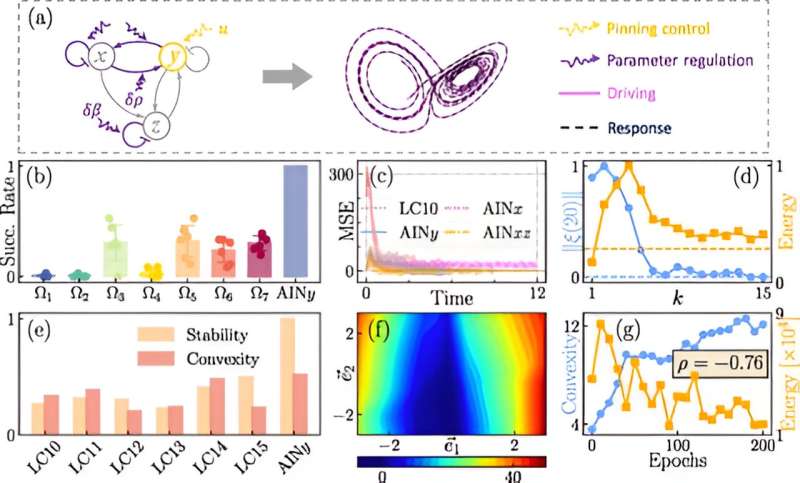
JULY 26, 2024 by Fudan University
Collected at: https://phys.org/news/2024-07-ai-useless-noise-widely-synchronizing.html
In a Letter published in Physical Review E, scientists from the Research Institute of Intelligent Complex Systems (IICS) at the Fudan University show AI makes useless noise widely useful in oscillator synchronization. These findings have implications for engineering energy-saving regulators and understanding the benefits of noise in various systems.
Noise has been observed to enhance the emergence of interesting dynamical behaviors in nonlinear physical systems. However, designing appropriate noise forms for a given system remains a challenge without a universal method.
While noise-induced synchrony has been extensively studied in physics and mathematics, most previous research focuses on the impact of existing noise rather than devising practical noise.
The IICS researchers explored how stochastic stabilization theory can guide the design of beneficial noise for inducing synchrony. This theory typically involves complex auxiliary functions that are difficult to construct manually.
By leveraging theoretical analyses for machine learning techniques, the researchers reformulated the synchronization problem. They sought optimal parameters for a candidate function parametrized by artificial neural networks, effectively creating a machine-learning-based noise controller.
“We discovered that machine-learning-generated noise exhibits an implicit energy regularization phenomenon, inducing energy-saving synchrony,” reports Jingdong Zhang, the study’s first author.
In their work, the scientists demonstrate that the loss function within the proposed AI framework, based on stochastic stabilization, implicitly incorporates a regularization term related to the energy cost during the controlled process. This insight could contribute to more efficient regulators in real-world scenarios, such as power grid management.
Professor Wei Lin, the Director of the IICS, emphasizes that this AI framework validates noise-induced synchronization not only near the synchronization manifold but also far from it, surpassing traditional control protocols and coupling methods.
More information: Jingdong Zhang et al, Machine-learning-coined noise induces energy-saving synchrony, Physical Review E (2024). DOI: 10.1103/PhysRevE.110.L012203
Journal information: Physical Review E

Leave a Reply